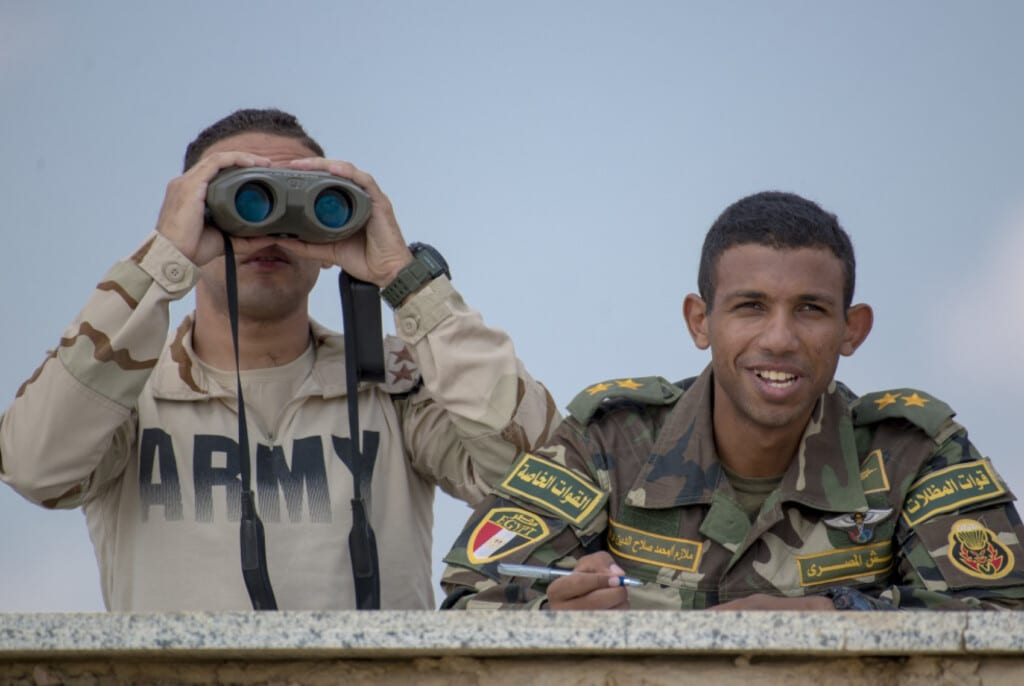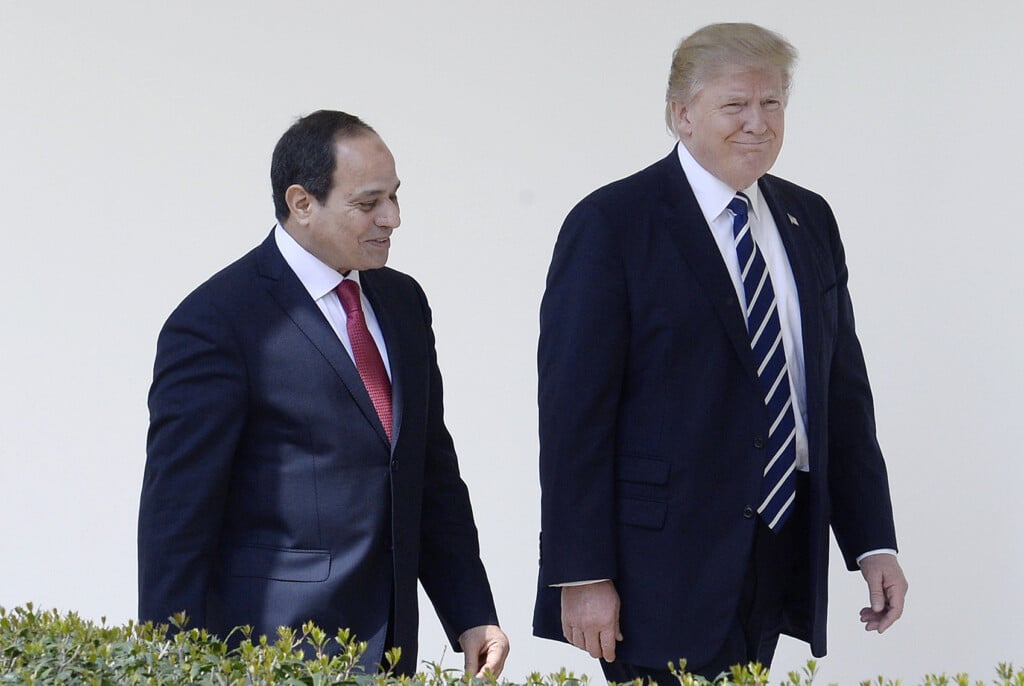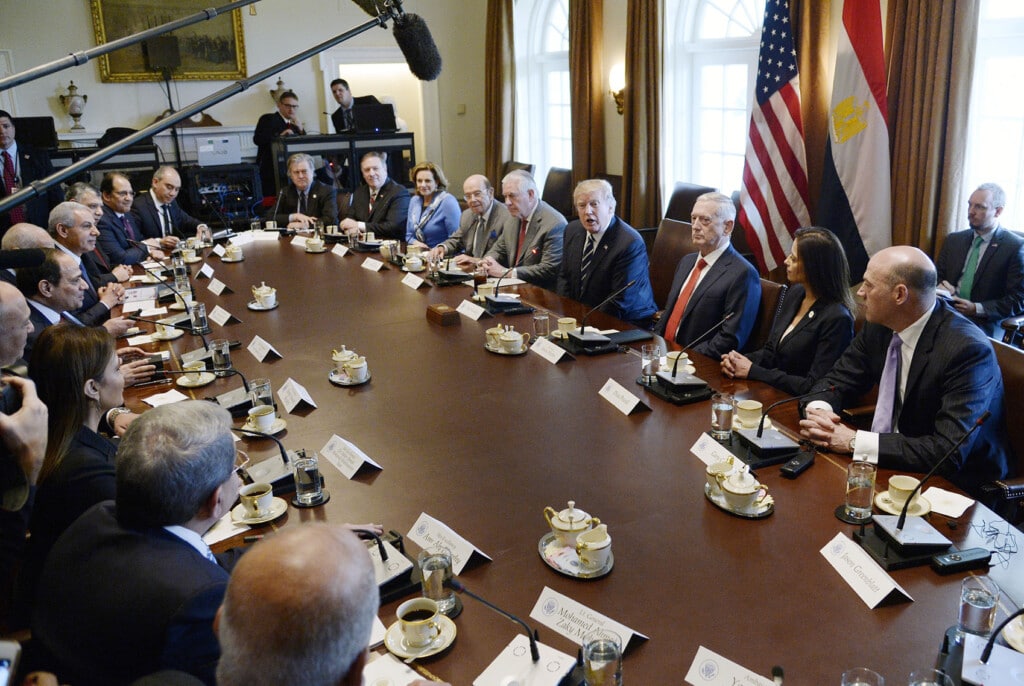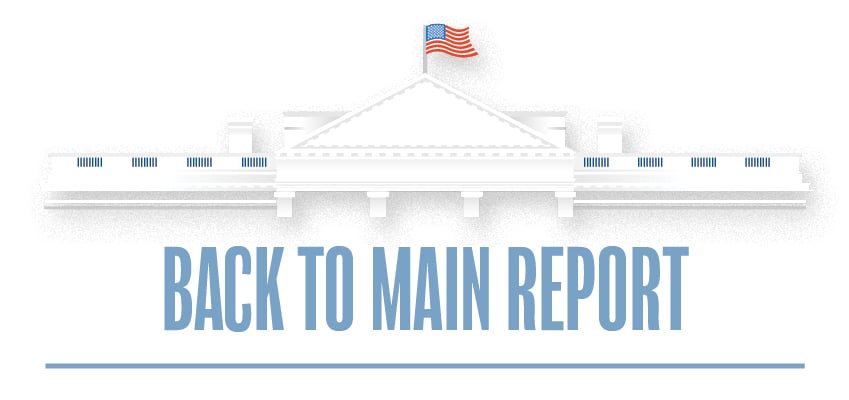January 31, 2019 |
Midterm Assessment: Egypt
Contents
January 31, 2019
Midterm Assessment: Egypt
Current Policy
The Trump administration has adopted a policy of restoring America’s strategic partnership with Egypt after five tense years under the previous administration, which did not support the 2013 military coup that toppled the Muslim Brotherhood-led government of President Mohammed Morsi. Under President Trump, security cooperation is once again the cornerstone of bilateral ties, with an emphasis on countering Islamist militant groups and addressing common regional security challenges. The administration has clearly deemphasized human rights and democratic governance in what some critics charge is a shortsighted abandonment of American values.
Trump has so far met five times with his counterpart, Abdel Fattah el-Sisi, and their personal relationship appears warm. Sisi’s official visit to the White House in April 2017 was the clearest sign that the administration sought to reverse the policies of Barack Obama, who never invited the Egyptian president to Washington. The administration has pledged support to Egypt’s ongoing fight against terrorism as well as its economic reform program, while raising only intermittent concerns about its disregard for the rule of law and civil liberties.1
Egypt is consistently the second largest recipient of U.S. assistance.2 Nevertheless, in August 2017, Washington denied Cairo almost $100 million in aid and held back another $195 million of military assistance.3 The surprise decision reflected U.S. concerns about both worsening repression at home and the Egyptian military’s persistent ties to North Korea. Egypt quickly announced it was cutting military ties to Pyongyang4 and, in response, the Trump administration in 2018 fully restored military aid, even though Egypt’s human rights situation continued to deteriorate.5
In his notification to Congress restoring full assistance, Secretary of State Mike Pompeo did include a lengthy and blunt description of the human rights climate in Egypt. He cited “a continuing problem with arbitrary arrests and detentions and forced disappearances, and numerous allegations of torture and death in detention.” Furthermore, he noted that non-government organizations (NGOs) have become the targets of harsh new regulations, while state-controlled media propagate conspiracy theories “to vilify NGOs receiving foreign assistance, including U.S. assistance.”6
Nevertheless, the Trump administration’s security cooperation with Cairo has continued apace. Washington’s January 2018 designation of the Egyptian-based HASM and Liwa al-Thawra as terrorist organizations was an indicator of U.S. support for Sisi’s campaign to challenge violent groups associated with the Muslim Brotherhood.7 Trump also restarted a biennial joint military exercise called Bright Star, which Obama suspended in 2013 after Egyptian security forces killed as many as 1,000 protesters in a single day.8 The Trump administration has, in addition, relied on Egypt to assist in its efforts to revive Israeli-Palestinian peace talks and avert another war in Gaza.

Two Egyptian soldiers during Exercise Bright Star 2018. (U.S. Air Force photo by Staff Sgt. Justin Warren)
Assessment
The Trump administration has promoted U.S. security interests by restoring America’s strategic partnership with Egypt. However, it has largely overlooked the Sisi regime’s crackdown on human rights and civil society. Furthermore, security cooperation appears to have only marginally improved Egypt’s competence in battling the Islamic State branch in Sinai. It has also not prevented Cairo from deepening its military ties to Moscow.
Sisi’s record on human rights and democracy remains abysmal despite recent positive steps to release imprisoned political activists and review the law curbing NGOs.9 The State Department’s latest human rights report detailed numerous problems, including restrictions on freedom of expression, torture, government control over NGOs, and trials of civilians by military courts. Tens of thousands of non-violent activists have been incarcerated. In addition, the State Department’s religious freedom report cited attacks on Christians, and lack of recognition for Bahais, Mormons, and Jehovah’s Witnesses. Egypt also mistreats ex-Muslims, including atheists or converts to other faiths, while restricting Shiites from performing religious rituals publicly.10 Finally, a new constitutional amendment could allow Sisi to extend his rule beyond the currently mandated eight years, which will end in 2022.11
To its credit, the Trump administration successfully negotiated the release of Aya Hijazi, an Egyptian-American aid worker, and U.S. citizen Ahmed Etiwy, who were wrongfully imprisoned. Nonetheless, 20 Americans reportedly remain jailed in Egypt.12 Trump has also pressed Sisi for better treatment of Coptic Christians, while Vice President Mike Pence voiced concerns about the arrest of non-violent activists.13
Admittedly, prioritizing the strategic relationship has yielded measurable benefits. Restricting Cairo’s military relationship with North Korea was an important achievement. Encouraging increased Egyptian engagement on Gaza has helped Israel manage the explosive situation there, including efforts by Cairo to hinder Hamas’ ability to smuggle money, weapons, and goods.14 U.S. support for IMF-backed economic reforms has helped stabilize Egypt’s macro-economic situation – though Cairo struggles to create jobs, attract private investment, and alleviate the hardships faced by Egypt’s rapidly growing population.
However, Egypt’s military campaign against the Islamic State in Sinai has had a limited impact. In 2017, the Islamic State carried out a series of bombings on Christian targets, as well as murdering more than 300 Sufis in the deadliest terror attack in Egypt’s modern history. Sisi responded by launching the “Sinai 2018” military campaign, which has halted high-profile attacks, although the Islamic State massacred seven Christians in central Egypt in November.15 In December, a roadside bomb attack on a tour bus in Giza killed three Vietnamese tourists and an Egyptian tour guide, the first incident targeting foreign tourists in Egypt in a year. The government, meanwhile, has failed to address some of the underlying causes of extremism: local political and economic grievances, reforming education curricula, and countering Islamist narratives.
The overarching challenge for U.S.-Egypt relations remains the same as it has been for 40 years: preserving a strategic partnership with a crucial regional state without turning a blind eye to human rights abuses that not only violate American values, but ultimately increase the likelihood of domestic instability.
Worryingly, military cooperation between Egypt and Russia has expanded, including a preliminary five-year agreement for the joint use of each other’s air space and airbases. The two have also conducted joint exercises in both Russia and Egypt, and have consulted closely on the conflict in Libya. On the economic front, bilateral trade is growing, including in Egypt’s energy sector. Cairo and Moscow signed a 50-year deal for a Russian Industrial Zone within the Suez Canal Economic Zone. Russia also continues to build Egypt’s first nuclear power plant, made possible by $25 billion of Russian financing.16 This indicates U.S. influence may be waning.
The overarching challenge for U.S.-Egypt relations remains the same as it has been for 40 years: preserving a strategic partnership with a crucial regional state without turning a blind eye to human rights abuses that not only violate American values, but ultimately increase the likelihood of domestic instability.

U.S. President Donald Trump and Egyptian President Abdel Fattah el-Sisi on April 3, 2017 at the White House. (Photo by Olivier Douliery-Pool/Getty Images)
Recommendations
- Balance the current emphasis on strategic cooperation with greater concern for human rights and democracy. The Trump administration should engage Egyptian officials in regular dialogue over human rights. If necessary, it should employ conditionality on foreign assistance to address serious concerns, a tactic that has proven effective.
- Promote religious freedom and monitor abuses targeting minorities, especially Christians who remain vulnerable to attacks. The administration should encourage educational and religious reforms through cooperation with educational institutions and universities. It should also counter anti-Semitic and anti-American campaigns in Egypt by exposing the perpetrators and challenging Cairo to reform the educational system.
- Appoint an American ambassador to Egypt. Cairo has been without a U.S. ambassador for over a year. A new ambassador would enable Washington to strengthen engagement with Egypt across the board.
- Continue sanctioning Egyptian organizations that meet the criteria for terrorism, including Muslim Brotherhood-tied groups. The Trump administration should communicate a clear message that the Brotherhood remains a breeding ground for extremism. This is sound policy for America’s war against terrorism, and also serves to support Cairo in its battle against domestic terror groups.
- Call for economic reforms. The administration should encourage Cairo to create more space for the private sector and minimize the role of the state and its armed forces in the economy.
- Encourage Egyptian efforts to push Palestinian leaders to reduce tensions and work with Israel. As Israel’s southern neighbor that also shares a border with Gaza, Egypt harbors significant influence with Israeli and Palestinian leaders alike. The United States should work to ensure that Cairo plays a constructive role in reducing tensions between them.

U.S. President Donald Trump speaks as Egyptian President Abdel Fattah el-Sisi sits on the opposite side of the table with their respective delegations in the Cabinet Room of White House on April 3, 2017. (Photo by Olivier Douliery-Pool/Getty Images)
